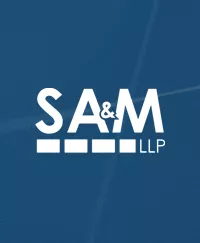Stubbs Alderton & Markiles' partner, Jeffrey Gersh and senior associate, Neil Elan co-authored “The Viability of Future TCPA Litigation in Light of Facebook Inc. v. Duguid".
A new landmark Supreme Court decision involving Facebook’s practice of sending unsolicited text message security notifications to cell phone numbers affiliated with potentially compromised accounts provides much-needed clarity on whether the act of sending unwanted telemarketing calls and text messages violates federal anti-robocall law under the Telephone Consumer Protection Act of 1991 (“TCPA”)
The last decade has experienced a surge in lawsuits under the Telephone Consumer Protection Act of 1991, (“TCPA”), which is codified in 47 U.S.C. § 227. The TCPA is a federal law that restricts the business practice of making and sending unsolicited telemarketing calls and marketing text messages. The TCPA prohibits the use of an “automatic telephone dialing system” (“ATDS”) to make or send telemarketing/advertising calls or text messages, without a consumer’s prior, express written consent. As defined in the TCPA, an ATDS is any equipment that has the capacity (1) “to store or produce telephone numbers to be called, using a random or sequential number generator” and (2) “to dial such numbers.” A random or sequential number generator has been generally thought to be something that chooses numbers randomly, and then dials the numbers sequentially at random without any human intervention. Stated alternatively, equipment does not constitute an ATDS if it is not capable of originating a call or sending a text without a person actively and affirmatively manually dialing each call or text. As discussed below, there has been uncertainty even over the definition of an ATDS. According to some courts, an ATDS must have the present capacity to autodial and must store or dial numbers using a random or sequential number generator; while other courts broadly interpret the meaning of an ATDS to include equipment that has the future capacity to dial numbers based on a random or sequential number generator.
Despite the foregoing definition, the determination of what is an ATDS has caused much more ambiguity than clarity, resulting in a barrage of inconsistent and irreconcilable federal court decisions throughout the country. For example, as a common fact pattern alleged in TCPA lawsuits occurs where a consumer visits a website, adds a product to the “online shopping cart”, and provides a cell phone number (among other contact information) to complete the purchase transaction online, without having actually “opted-in” or otherwise expressly agreeing to receive further text marketing messages. As part of a marketing campaign, the business then later sends promotional or marketing text messages to the consumer and other numerous similarly situated consumers based upon the information supplied by the consumer (e.g., geographical region, preferences, etc.). The outcome of such cases most commonly hinge on whether (1) the consumer provided prior, express written consent to receive the text messages, and (2) whether an ATDS was used to send the text message (e.g., whether the equipment stored or produced numbers through the use of a random or sequential number generator). Any text message that was sent using an ATDS without the consumer’s prior, express written consent constitutes a violation of the TCPA, and would subject the defendant to statutory damages of at least $500 per each unauthorized text message (as well as the potential for treble damages for willful violations).
Within the context of this general fact pattern, TCPA liability would ultimately depend on whether the federal court adopts a broad or narrow interpretation of what is an ATDS. Under a narrow interpretation, adopted by the Third, Seventh, and Eleventh Circuits, no liability would attach because the equipment would not qualify as an ATDS since the text messages were not stored or produced using a random or sequential number generator; rather, the text messages were sent to a list of targeted, individualized numbers. In contrast, under a broad interpretation, adopted by the Second, Sixth, and Ninth Circuits — even though the equipment in question did not utilize a random or sequential number generator to store or produce the text messages — the equipment used to send the text messages would qualify as an ATDS because it has the future capacity to store or produce random or sequentially-generated numbers (even if the capacity was contingent upon the installation of hardware or software in the future) and because it can dial a stored number automatically.
Fortunately, the Supreme Court brought clarity to this issue in its April 1, 2021 decision in the case of Facebook Inc. v. Duguid et al., No. 19-511 (U.S. April 1, 2021). There, Noah Duguid (“Duguid”) received a series of text messages from Facebook that alerted him of an attempt by someone to login to what Facebook believed was his Facebook account from an unknown device/browser, notwithstanding that Duguid neither had a Facebook account nor provided Facebook with his telephone number. Facebook’s notification system did not store or produce numbers using a random or sequential number generator. Rather, Facebook sent the targeted, individualized text messages to Duguid because his number was linked to a potentially compromised account. Nonetheless, Duguid advanced a broad definition of what an ATDS is and contended that Facebook’s notification system constituted an ATDS because it had the future, abstract capacity to generate random or sequential phone numbers (even though his telephone number was not stored or produced by way of a random or sequential number generator). In a well-reasoned opinion that focused on the TCPA’s plain language and legislative intent, the Supreme Court ruled in favor of Facebook. As the Supreme Court held, making calls, or sending text messages to telephone numbers without the use of a random or sequential number generator does not trigger liability under the TCPA. Rather, to qualify as an ATDS, the call or text message at issue must have been sent using a random or sequential number generator.
The impact of this decision cannot be overstated. It will, for example, (1) likely result in the dismissal of many pending TCPA lawsuits, (2) limit the opportunity for plaintiffs to forum-shop by filing a TCPA lawsuit in jurisdictions with a broad interpretation of the TCPA, and (3) provide businesses with clarity to ensure compliance with the TCPA and allow them to better determine whether they are in fact utilizing an ATDS in violation of the TCPA.
While the decision is a victory for Facebook, it will also favor consumers — on the heels of the decision, businesses will be able to alert users/consumers/customers of potentially unauthorized or fraudulent account activity, without fear of TCPA liability. Businesses should also be relieved to know that they can send advertising text messages and make advertising calls, as long as the telephone numbers are not stored or produced through the use of a random or sequential number generator. However, even after this ruling, there is still some uncertainty regarding what it means to be an ATDS — for example, as raised in a footnote in the decision , “an autodialer might use a random number generator to determine the order in which to pick phone numbers from a preproduced list. It would then store those numbers to be dialed at a later time.” What happens in that situation? Perhaps that will be the subject of a future Supreme Court decision. Until then, it is reassuring that we are at least one step closer to clarity of what it means to be an ATDS.
Authors

Jeffrey Gersh is a Partner of the Firm in the Business Litigation Practice. Before joining Stubbs Alderton & Markiles, LLP, Jeffrey was Managing Partner of The Gersh Law Firm for over 10 years and a partner for 25 years with a prominent litigation law firm. Jeffrey has been named a Thomson Reuters “Super Lawyer” for more than 9 years by his peers; an honor only achieved by less than 2.5% of attorneys in California.
Jeffrey successfully litigates, arbitrates, or mediates for both plaintiffs and defendants complex business and commercial matters, whether for individuals, public or private corporations, partnerships, limited liability companies and/or its members, shareholders and partners. Jeffrey Gersh successfully handles disputes regarding contract matters, trade secrets, intellectual property (trademarks, copyrights and trade dress) negligence and fraud, employment, real estate, license agreements, the apparel and garment industry, and general business matters.

Neil Elan is an Associate in the Business Litigation Practice group. Neil Elan’s civil litigation practice focuses on all areas of business and commercial litigation, with a particular emphasis on business dissolution, buy-sell agreements, prosecution and defense of breach of contract and promissory note actions, business torts, unfair business practices, fraud, and Anti-SLAPP. In his civil litigation practice, Neil represents real estate developers, limited liability companies, closely-held corporations, financial institutions, entertainment producers, commercial landlords and business owners.
For more information about our Business Litigation Practice contact Jeffrey Gersh at

